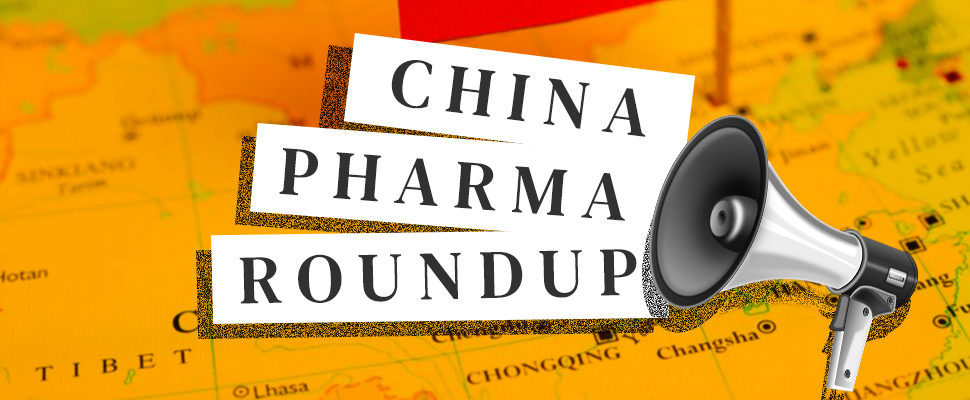The latest pharma industry and healthcare news coming out of China including AstraZeneca’s acquisition of Gracell Biotechnologies; the alarming drop in enrolment in China’s state health insurance system; Huadong Medicine/Impact Therapeutics cancer drug deal; new Changchun GeneScience Pharmaceutical R&D centre in Shanghai, and MGI Tech’s bet on Australia.
AstraZeneca, Sanofi RSV infant shots approved in China (Reuters)
AstraZeneca said that its respiratory syncytial virus (RSV) immunization for infants developed with Sanofi has got approval in China. The drug makers co-developed the RSV shot for infants and toddlers called Beyfortus, which has already been approved for use in the European Union and United States.
Beyfortus is expected to be available in China during the upcoming 2024-2025 RSV season, the London-listed drug maker said in a statement.
AstraZeneca to buy China’s Gracell Biotechnologies in $1.2 billion deal (Reuters)
AstraZeneca said it will buy Gracell Biotechnologies for up to $1.2 billion as the Anglo-Swedish pharma company furthers its cell therapy ambitions and boosts its presence in China, the world’s second-largest pharmaceuticals market. The cash deal, which adds several experimental therapies to AstraZeneca’s portfolio, values Gracell at $2 per ordinary share, or $10 per American Depository Share, of Gracell, representing a premium of 61.6% from its last close on Dec. 22.
Why have millions dropped out of China’s state health insurance scheme? (South China Morning Post)
Enrolment in China’s state health insurance system fell by about 17 million subscribers last year due to a number of factors. The system is under pressure from a growing elderly population and shrinking workforce.
China’s Huadong to Buy Exclusive Rights to Impact’s Cancer Drug in Chinese Mainland for USD41 Million (Yicai Global)
Huadong Medicine, one of China’s most diversified makers of dermatosis medicines, plans to purchase exclusive rights to market a first-in-class cancer drug Senaparib developed by Chinese biopharmaceutical firm Impact Therapeutics in the Chinese mainland for CNY290 million (USD41 million).
GenSci launches global innovation hub in Shanghai to address gynaecology and paediatrics challenges (BioSpectrum Asia)
Changchun GeneScience Pharmaceutical (GenSci), a subsidiary of Changchun High-Tech Industries (Group), recently held a groundbreaking ceremony for its new global headquarters and research & development (R&D) centre at Shanghai Zhangjiang International Medical Park. The establishment of the R&D centre sets the stage for GenSci to further advance the convergence of industry, academia, research and the medical community. By leveraging cutting-edge R&D capabilities and the application of artificial intelligence technologies, GenSci is well-positioned to provide premium health solutions for women and children.
China’s MGI Tech takes cutting-edge DNA, Cell and Spatial Omics capabilities to Australia (BioSpectrum Asia)
MGI Australia, a subsidiary of China headquartered MGI Tech Co., a global leader in life science technology, has announced a substantial expansion of its Brisbane Customer Experience Centre (CEC), now providing Australian and New Zealand researchers first access to MGI’s cutting-edge DNA, Cell and Spatial Omics (DCS) capabilities.
Roche inks $50M ADC pact with Chinese biotech as field’s flurry spills over into 2024 (Endpoints)
Antibody-drug conjugates, one of the creams of the crop in 2023 biopharma dealmaking, are riding into 2024 on a strong note as Roche pays $50 million upfront to collaborate with a biotech in China, where many of the ADC deals have been made recently.
Big Pharma reworks China strategy, and job cuts are part of it (Fierce Pharma)
Big Pharma companies have often talked about the major opportunities that await in China. But as price cuts play out and internal priorities shift, multinational companies are reworking their business models in the country.
In the last few months of 2023, Pfizer, GSK, Sanofi and Biogen have each tapped local partners to help commercialize their products in China. With marketing responsibilities shifting to other firms, job cuts were expected at each of those large drugmakers.



